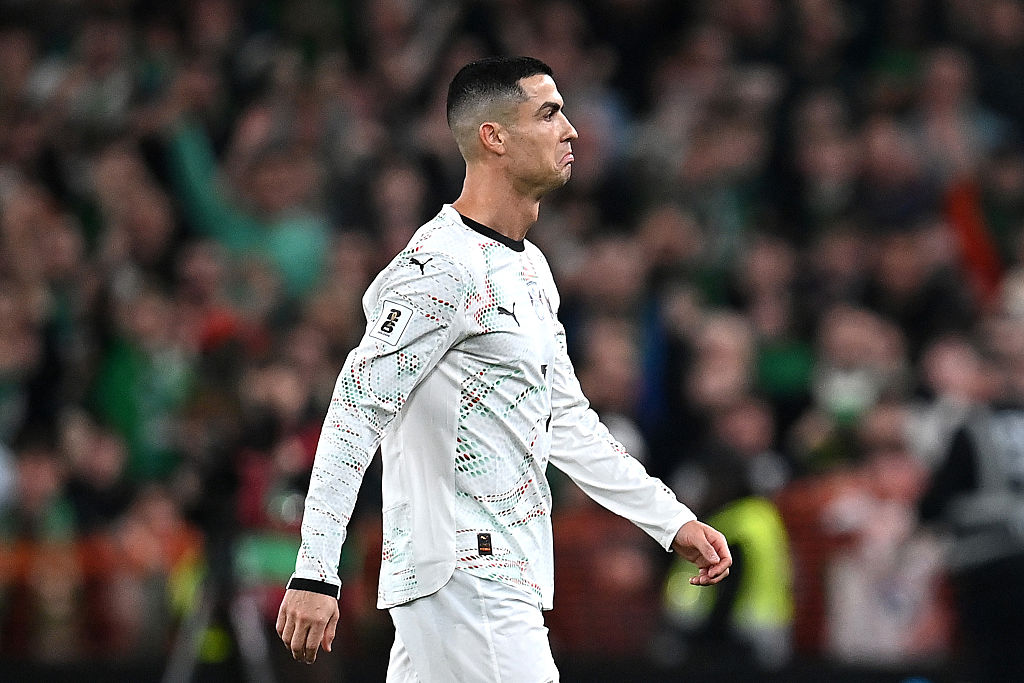FourFourTwo’s 100 most influential people in football right now: 40-31
Moving on up with one of the most powerful women in European football, the bloke who hired Pep Guardiola twice and nobody's favourite media mogul
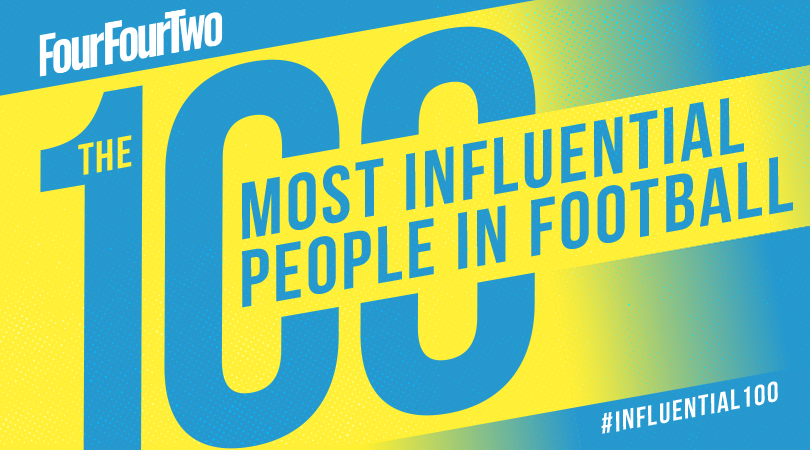
Words: Michael Yokhin, Seb Stafford-Bloor, Mike Holden, Amit Katwala, Jeff Kassouf, Emyr Price.
40. Nathalie Boy de la Tour
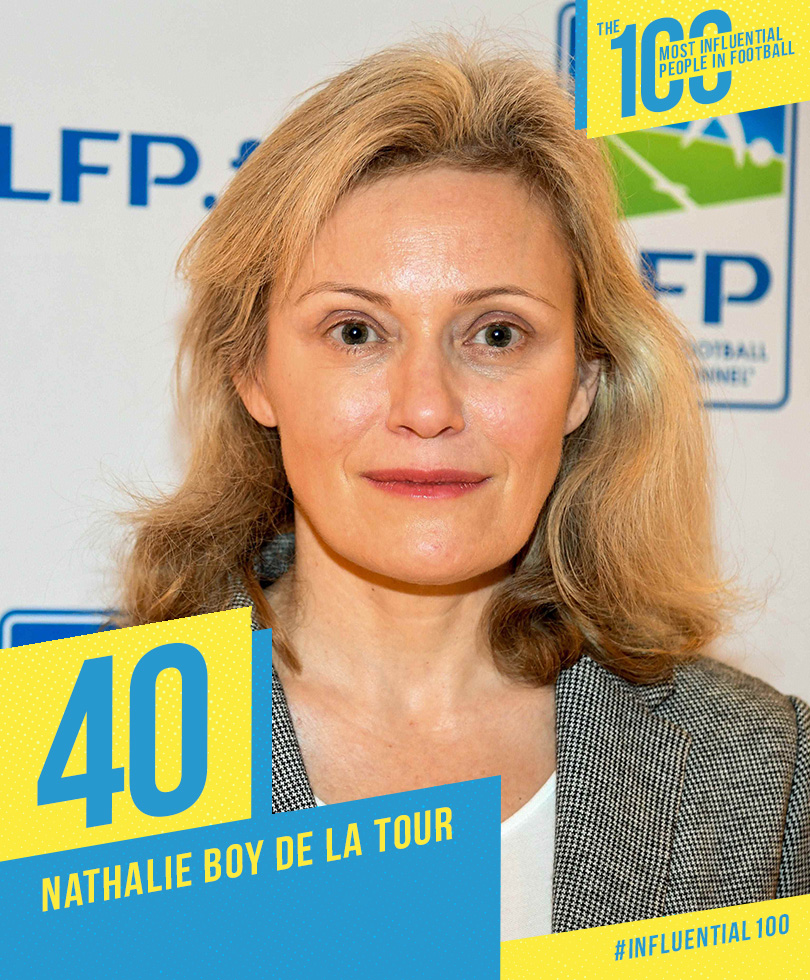
Boy de la Tour's election as president of France's Ligue de Football Professionnel in November 2016 offers hope to women who want to take their share in management of the most popular sport.
The 48-year-old – the first ever woman to hold the post – might have been fortunate given unusual political circumstances, and claimed that even she was surprised to win, but now intends to lead French football forward and stay in the job for four years at least. "Football is not a macho or misogynistic world as one can imagine," Boy de la Tour said.
She might be pioneering in introducing technology to help referees, and has made it one of her top priorities. "We want to constantly improve, and using video replays seems essential because it brings fairness and sporting justice. 90 per cent of the fans want it to be implemented," she claimed. Tests might be introduced in the French League Cup as early as 2018. MY
39. Ivan Gazidis
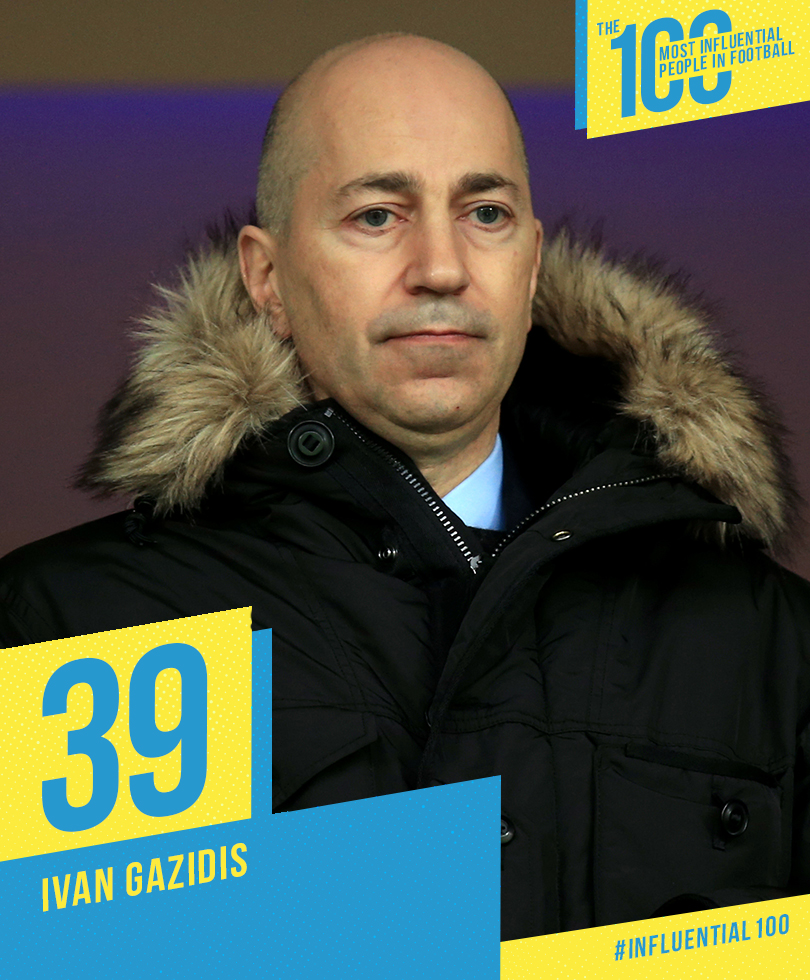
Mr Catalyst for Change – whatever that means. Gazidis is Arsenal’s chief executive and, given the current climate, there isn’t a more scrutinised role in English football.
The best features, fun and footballing quizzes, straight to your inbox every week.
Often charged as being an apologist for Arsene Wenger, he is in the middle of the “extend or not to extend” bore-a-thon which has long burned the enthusiasm from hearts far and wide. He’s also in the unenviable position of not being able to make any kind of comment (or decision) without significantly displeasing a large proportion of the club’s supporters – and quite possibly, Wenger himself.
Whatever the outcome, Gazidis will ultimately be responsible for the manner in which Arsenal attempt to climb back from this season’s galling failure. The Premier League has never looked a realistic possibility, local superiority over Tottenham has gone, and the manner in which the club recalibrates its football operation will, in part, be defined by him. That’s if he’s still around to lead the way, amid reports of big job offers from America. SSB
38. Javier Tebas
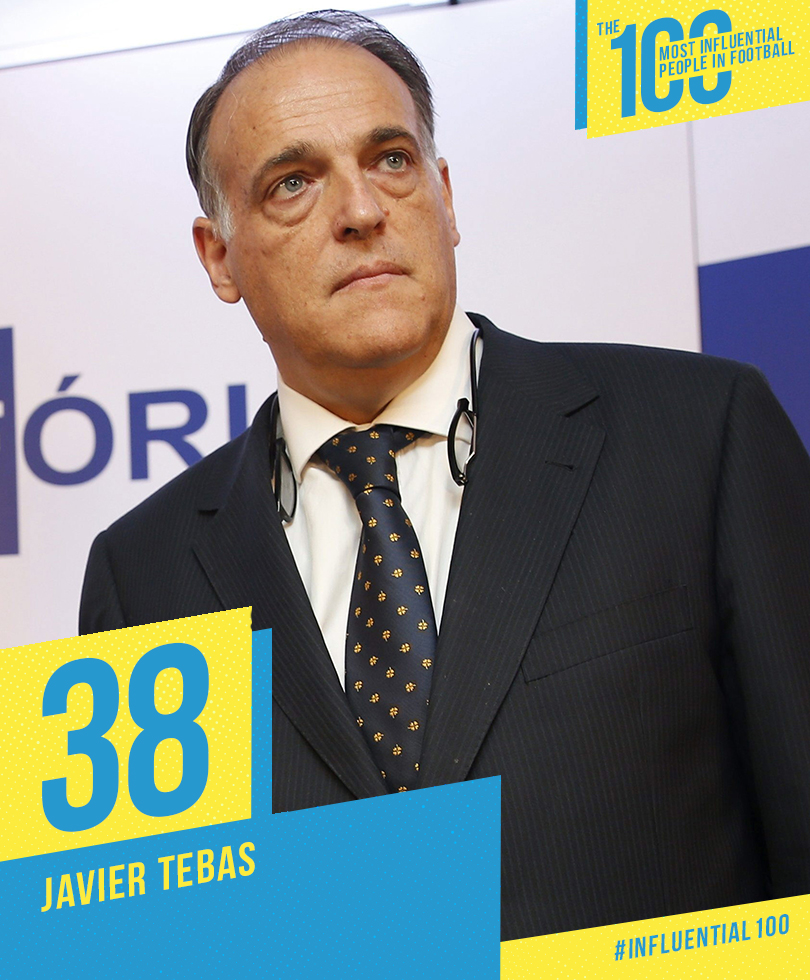
When he’s not being heckled by Gerard Pique about questionable refereeing decisions, Javier Tebas considers it his mission to clean up the image of Spain's domestic game.
A self-confessed Real Madrid fan since childhood, his experience for the role of league president is unquestionable after a quarter of century spent working in the boardroom of 11 different clubs and three terms served as vice-president.
Tebas landed the top job in April 2013 with the league embroiled in a match-fixing scandal, and the tenacity with which he has tackled the issue of maletines (little briefcases) can only be applauded. To what extent the culture of third-party incentive payments has been eradicated is unclear, but the changing climate of intolerance towards the practice is a firm step in the right direction.
The spiral is being reversed and the integrity of the Primera Division can only benefit. MH
37. Txiki Begiristain
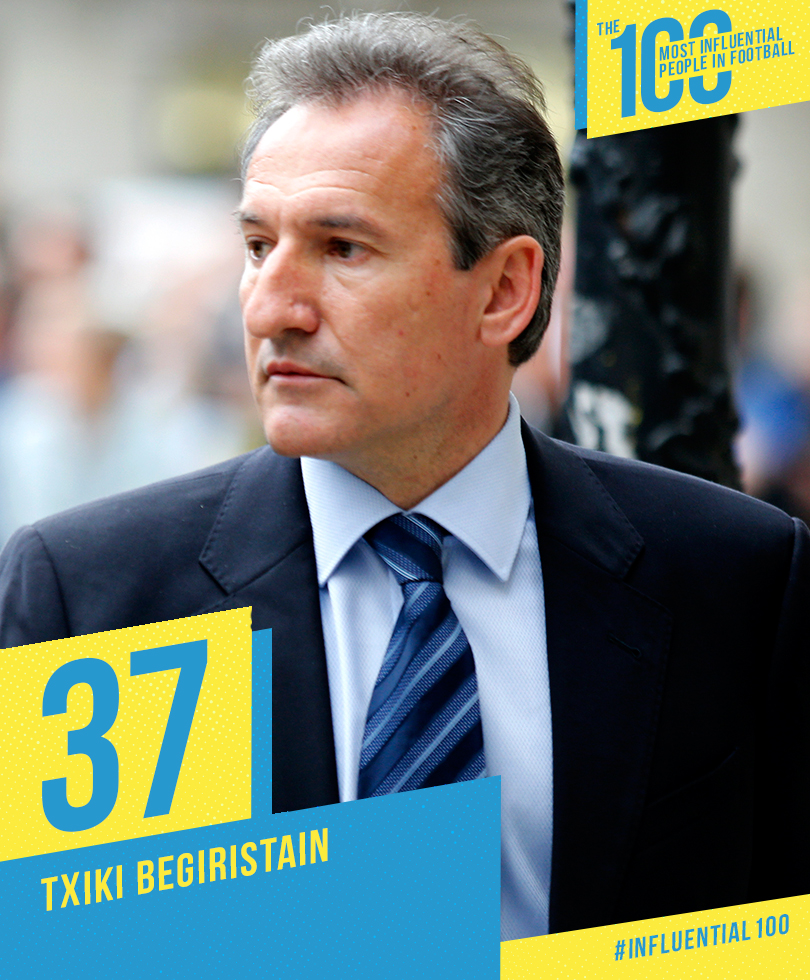
One decision has shaped Begiristain’s career above all others and, fair play, it was certainly a ballsy one.
The appointment of Pep Guardiola as Barcelona boss in the summer of 2008 – ignoring Jose Mourinho’s application in the process – was risky to say the least. But it reaped huge dividends for all concerned, and it’s hardly a secret that Begiristain landed the sporting director’s role at Manchester City in August 2012 on the promise of his ability to attract Guardiola to the club one day.
Begiristain’s record in charge of transfers at the Etihad is suspect to say the least – just as it had been previously with Barça – but that bond with his former team-mate trumps everything. They share a vision on how the game should be played, stemming from their days together under Johan Cruyff, and it creates a level of trust and understanding that enables Guardiola to go about his business free of frustration. MH
36. Twitter
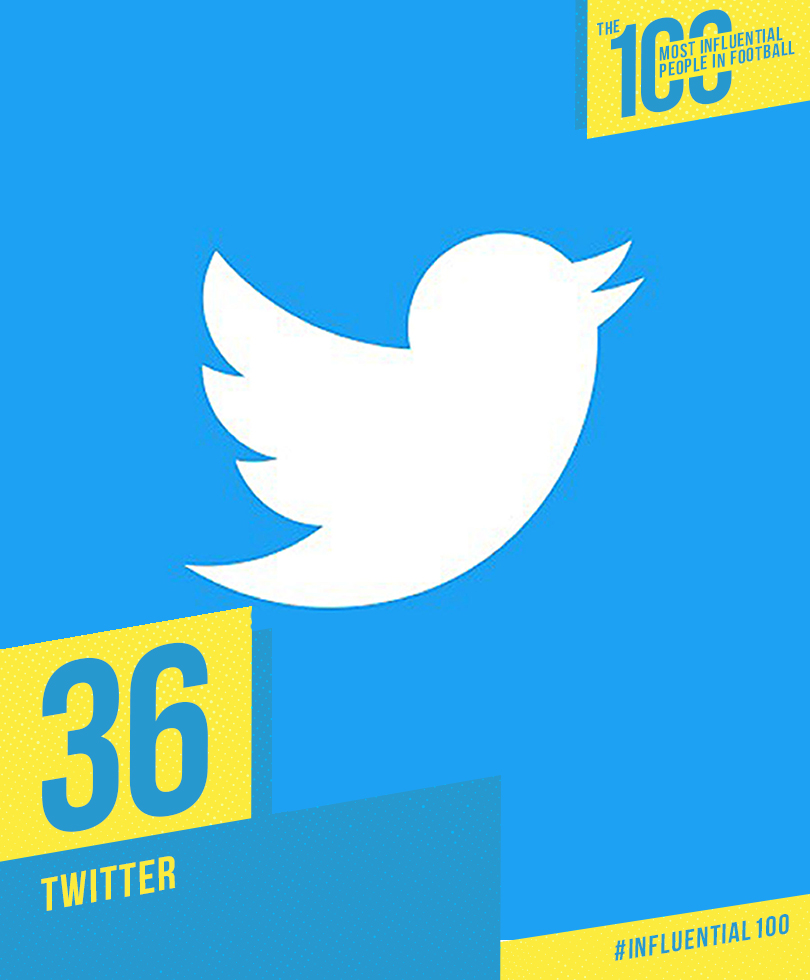
In the dark days before the advent of social media, if you wanted to know what a footballer ate for lunch, you’d have had to follow them to the pub (only to find out that it was probably chips). Now players can share photos and opinions from the team bus to the dressing room – and Twitter can be both a gift and a curse for them.
It’s a lucrative source of extra income – as long as you remember to take the ‘Please write something like…’ bit out of the email before you paste it in.
Some players have helped change their image through their social media posts – Robert Huth is the James Blunt of football Twitter, while Joey Barton’s persona was that of a sixth-form philosophy student. On the other hand, though, it’s also a potential minefield, as players are fined for bringing the game into disrepute with ill-timed comments and posts.
It’s not their fault; those smartphones have a mind of his own, as Joleon Lescott will tell you after his managed to tweet a picture of a luxury car from his pocket while he was driving home from an embarrassing defeat. Technology, eh? AK
35. Sunil Gulati
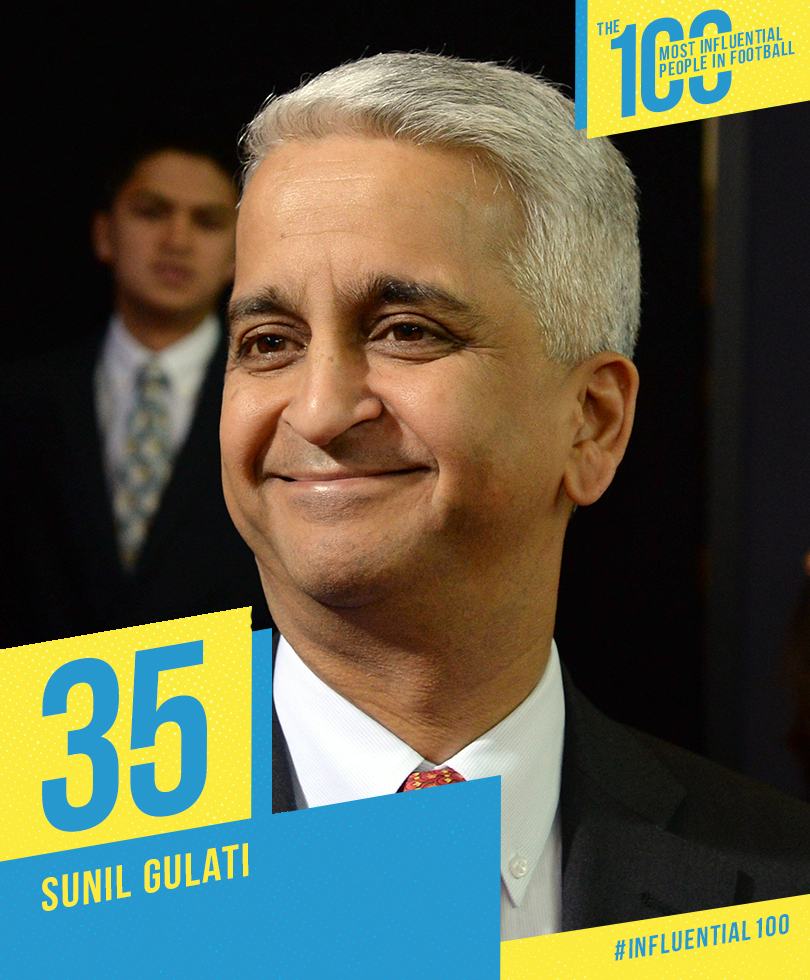
The most powerful man in U.S. soccer showed just how much influence he has on a global scale in last year’s FIFA presidential election of Gianni Infantino, as insider accounts depicted just how much sway he had in the vote.
Gulati is now the driving force between a joint 2026 World Cup bid between the United States, Mexico and Canada – a bid which would see the U.S. host 60 of the 80 games played in the expanded format. Mexico and Canada appear thankful just to be included.
Gulati controls all things U.S. Soccer, including the men's and women's teams, and he has turned the federation into a profitable business which has others around the world taking notice – just look at the successful hosting of last year's Copa America and the reported $46 million profit that the USSF made off of it.
There are rumours of more joint CONCACAF/CONMEBOL tournaments to follow in light of the smashing financial success the tournament had. As much influence as Gulati enjoys in the U.S., he pulls plenty of weight outside these shores too, as president of the federation. JK
34. Gavin Patterson
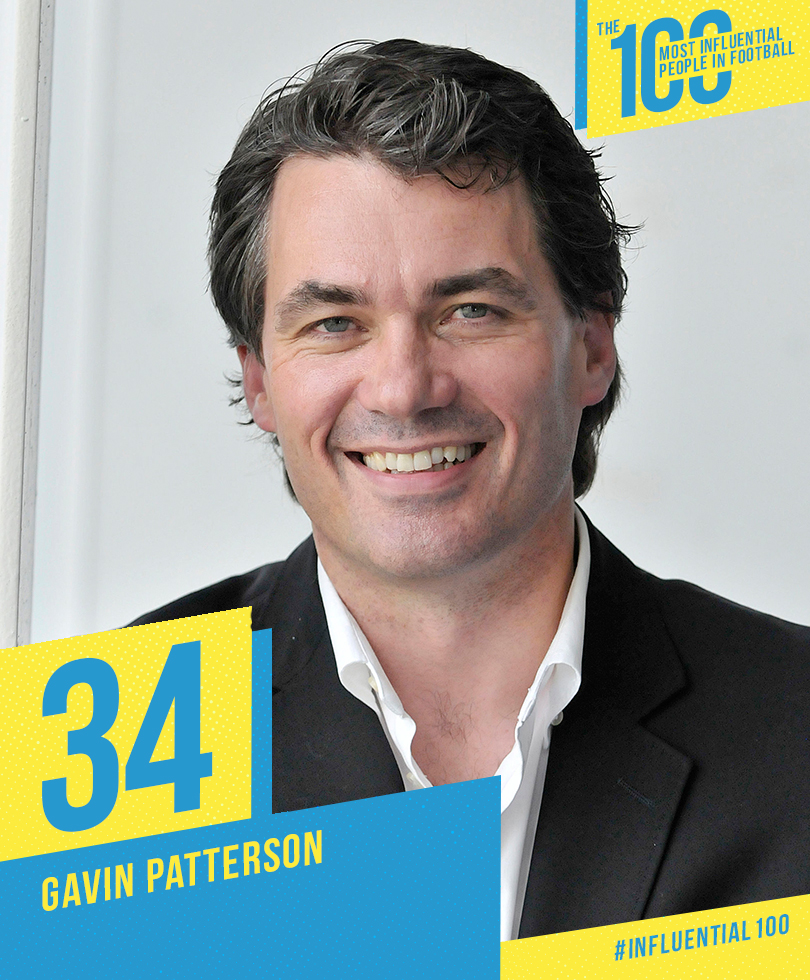
BT’s chief executive since 2013, and by extension the man who led their charge against Sky Sports in the same year, Patterson's company pledged £960m for the right to claim two of the seven packages on offer in 2013’s TV rights money fight.
Competition is nearly always a force for good, and BT have certainly provided a genuine alternative to Sky’s broadcasting model. Though their domestic coverage relies on many of the same turn-up-and-talk platitudes, their European offerings are rich and diverse and have, particularly in the case of the Champions League Goals Show, brought a necessary freshness to the genre.
These are choppy waters for BT and Patterson, though. At the end of March, the company was hit with a £42m Ofcom fine for breaching the rules surrounding provision of access to their broadband network. Worse, they also had to swallow a compensation bill of nearly £300m as a result. Meanwhile, heading out the door is Delia Bushell, the managing director of TV and sport who joined BT to help take on Sky and recently handed in her notice after securing the Champions League rights for £1.2bn in March.
How that affects their ability to remain in a football market which is becoming less cost-efficient with each contract cycle remains to be seen, but Patterson will hold enormous sway over the direction they choose to take – and, by proxy, over the landscape of British football over the coming years. SSB
33. Mark Parker
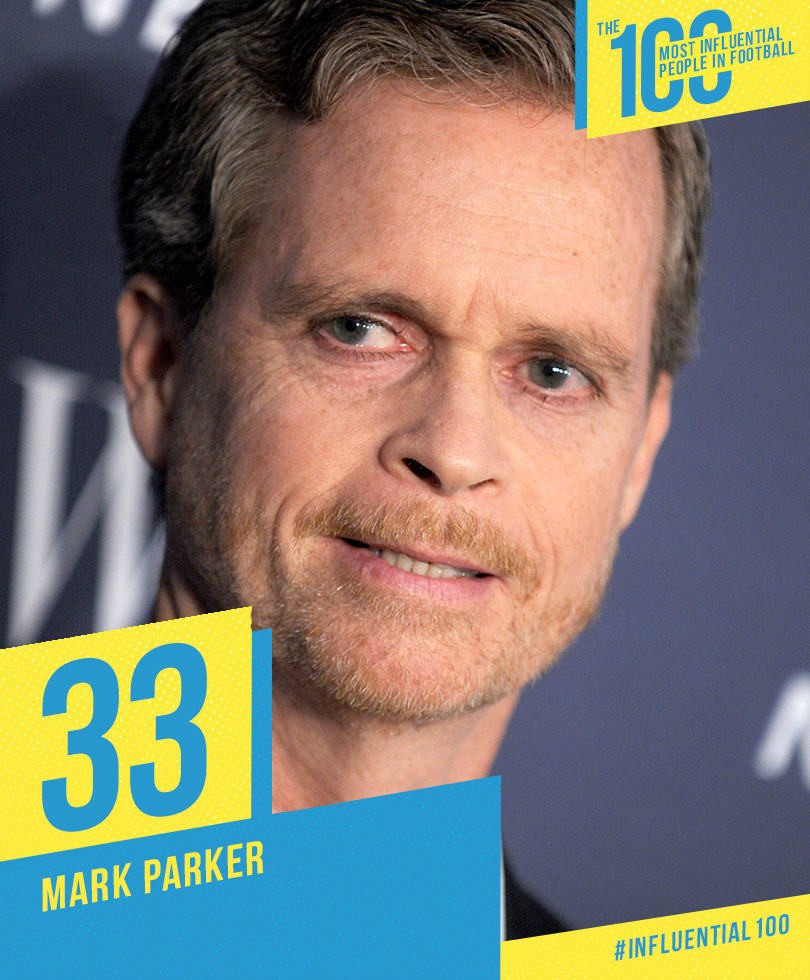
So, how do you take the reins at one of the world's best established sports firms and then double sales within a decade? Ask Mark Parker, CEO of Nike since 2006.
Nike now controls 62% of the athletic shoe market – a sector that includes football boots – dwarfing Adidas's 5% holding. By 2020, sales at Nike's e-commerce platform are expected to hit $20 billion.
Parker's ascent from influential designer to head honcho was swift. It was he who first implemented the category structure at the company in 2009, giving football a distinct presence alongside Nike's more recognisable brands of Athletics and Basketball.
He was also the driving force behind Nike's takeover of UK-based football brand Umbro in 2009, which led to profits in 2014 of over $2.3 billion solely from its football products. Today, the Nike Football account has almost 28 million followers on Instagram. EP
32. Christian Seifert
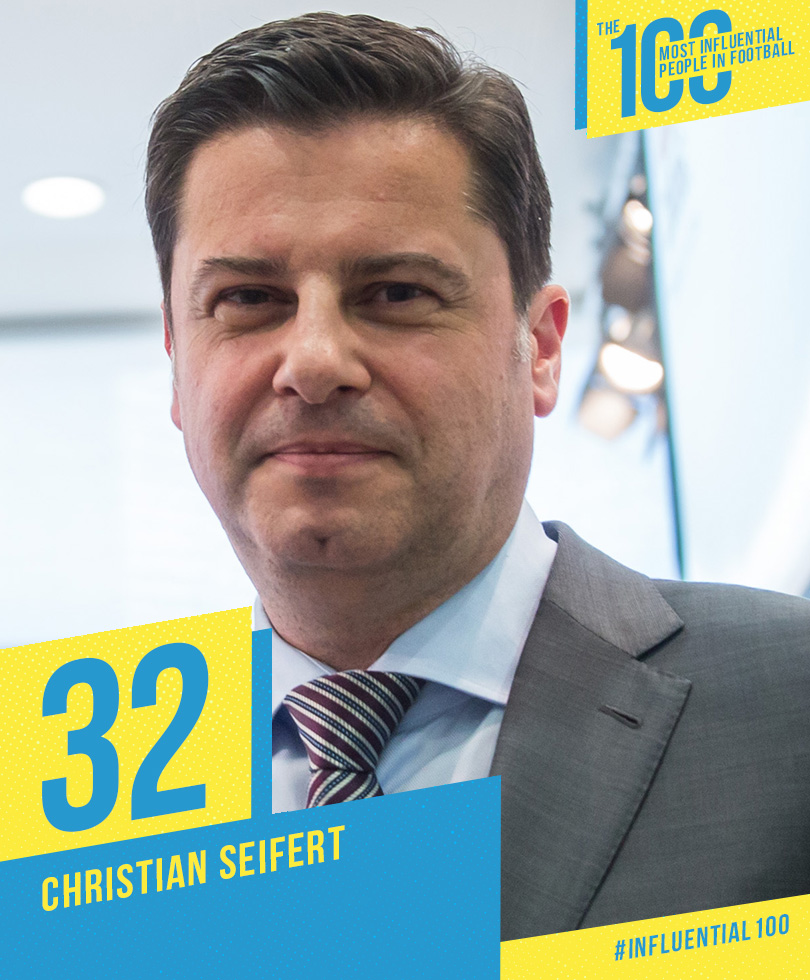
Bayern Munich might be dominating German football, but the attendances are outstanding at all matches and the Bundesliga is flourishing. Christian Seifert, CEO of the Deutsche Fussball Liga (DFL), is one of the men responsible for that.
Having taken the post in 2005, he has overseen a magnificent long-term programme to run all the aspects of German club football, which is now much healthier – both financially and socially – than any other league in Europe. Most of the clubs have no debt, and the commitment to affordable ticket prices and security helped to make watching football from the stands attractive for families.
"Long-term, the only league to enjoy success will be the one offering a high-calibre competition, a distinctive character of its own and top-level media competence, in equal measure,” Seifert said recently.
He is doing his utmost to ensure just that, and his support for significant changes to the Champions League shouldn't be overlooked either. MY
31. Rupert Murdoch
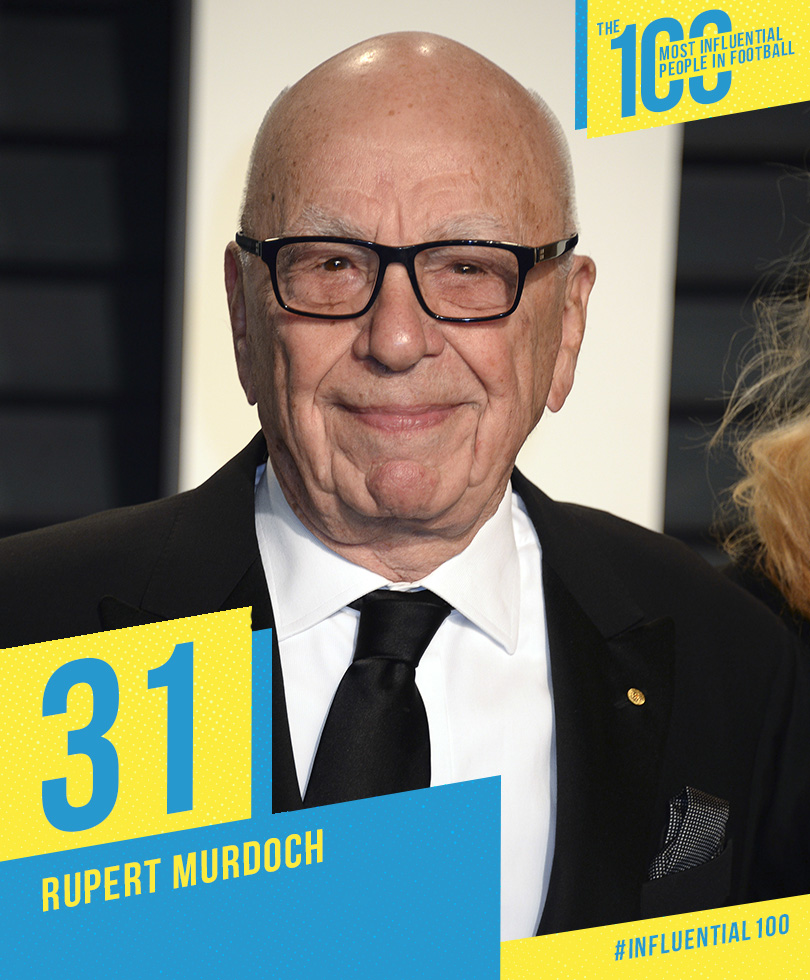
The story is well-known: Murdoch used football as a means of forcing as many satellite dishes onto the exteriors of as many British households as possible. It worked – over the past two-and-a-half decades, the sport’s broadcasting value has allowed it to shift its shape entirely.
To a degree, every aspect of its evolution can be traced back to Murdoch: he effectively built the stage, amplified the interest, and provided the marketing platform upon which it continues to build. Competitors may have subsequently entered the market, but Sky Sports (BSkyB) remains the Premier League’s principal backer.
And, of course, had it not been for the Monopolies and Mergers Commission’s intervention in his 1999 takeover of Manchester United, Murdoch would have been considerably higher on this list. SSB
100-91 • 90-81 • 80-71 • 70-61 • 60-51 • 50-41 • 40-31 • 30-21 • 20-11 • 10-1
Joe was the Deputy Editor at FourFourTwo until 2022, having risen through the FFT academy and been on the brand since 2013 in various capacities.
By weekend and frustrating midweek night he is a Leicester City fan, and in 2020 co-wrote the autobiography of former Foxes winger Matt Piper – subsequently listed for both the Telegraph and William Hill Sports Book of the Year awards.
 Join The Club
Join The Club






